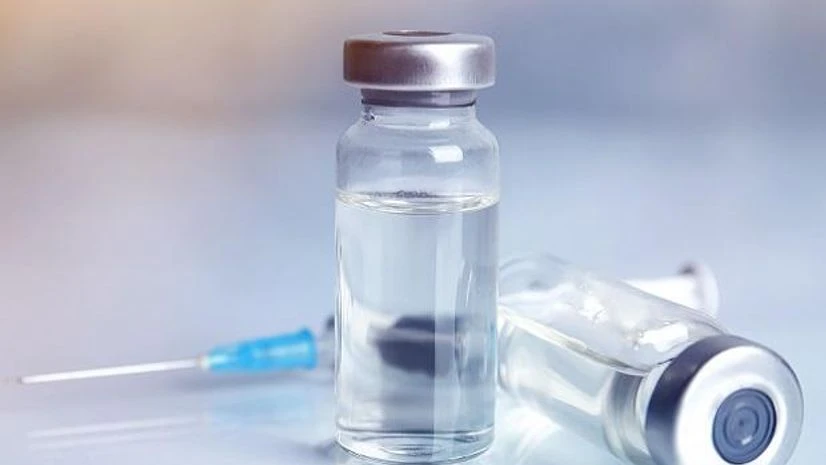A flight carrying 1.24 million doses of AstraZeneca vaccine from Japan touched down in Taiwan's Taoyuan International Airport on Friday to help the island fight its largest outbreak since the pandemic began.
The donation underscores how geopolitics have come to impact the global vaccination rollout, as countries scramble to secure enough vaccines for their populations.
Taiwan, a self-governing island, has struggled to get its own vaccines, blaming China for interfering in a deal. Now the island is more than doubling its vaccine supply thanks to Tokyo, as Japan tries to play a greater role in global vaccination distribution while pushing to accelerate its painfully slow vaccine rollouts at home ahead of the Olympics in July.
Japan's Foreign Minister Toshimitsu Motegi told reporters Friday morning that the donation reflects Japan's important partnership and friendship with Taiwan.
Motegi said Japan is responding to a Taiwanese request, citing difficult situation for the vaccine supply until its production is expected to be ready in July.
Motegi said Tokyo's donation is based on friendship between the two regional partners. The Japanese people never forget Taiwan's quick and generous support in time of the 2011 triple disaster, he said.
More From This Section
Japan reportedly considered going through COVAX, the UN programme to distribute vaccines to low and middle-income countries, but decided it would take too long to go through the whole process.
Taiwan has signed contracts securing 10 million doses of the AstraZeneca vaccine, 5.05 million doses of the Moderna vaccine, and 4.76 million doses of vaccines through COVAX. It is also pursuing the development of its own vaccines, both of which are in mid-stage testing at the moment.
However, facing global supply constraints and manufacturing delays, it only had about 700,000 doses on hand to vaccinate its population with last month, all AstraZeneca's shots.
Tsai Ing-wen, the island's president, in a meeting with members of her Democratic Progressive Party last month accused China of blocking Taiwan from getting BioNTech-Pfizer vaccines.
As for Germany's BioNTech, we were almost finished with the contract with the German supplier, but owing to China's interference, it's been delayed so that until now we have no way to complete it.
Health Minister Chen Shih-chung later revealed further details about the negotiations in which the German company had asked Taiwan to change the word country from the press release announcing the deal. Taiwan had agreed to make the change, but the deal still remains unfinished.
Fosun Pharma, BioNTech's local partner in China, said in an interview with the official Xinhua state media also previously offered to sell the vaccines to Taiwan. However, Taiwan by law bans Chinese-made medical products, including vaccines.
The island, which China considers its own, has also faced pressure from China's vaccine diplomacy.
China has distributed hundreds of millions of its vaccines globally, in Africa, in Latin America and across parts of Europe. Taiwanese Foreign Minister Joseph Wu on Thursday said China is seeking political gains abroad in return for providing vaccines and other pandemic assistance. Wu had previously accused China of pressuring a Taiwanese ally Paraguay to break diplomatic relations in return for vaccines.
China has also shut Taiwan out of an increasing umber of international organizations including the World Health Organisation and has blocked Taiwan's cooperation with COVAX, Wu said.
China says its overseas assistance comes without political conditions, but has aggressively used its economic might in recent years to poach Taiwan's few remaining allies and erode the influence of the US and other democracies.
Globally, countries around the world are struggling to access vaccines from Pfizer, Moderna and AstraZeneca as manufacturers face delays in scaling up production quickly.
Japan, with its home developed vaccines still uncertain, solely rely on imports and has approved doses by Pfizer, Moderna and AstraZeneca. The first two have been in use, but Japan has no immediate plans to use AstraZeneca, whose doses are produced in Japan under a licensing deal.
At an online vaccine summit Wednesday, Japanese Prime Minister Yoshihide Suga pledged an additional $800 million for the COVAX programme, bringing Japan's total contribution to $1 billion. Tokyo also plans to donate 30 million doses of vaccine produced in Japan through COVAX as well as other multilateral and bilateral channels.
(Only the headline and picture of this report may have been reworked by the Business Standard staff; the rest of the content is auto-generated from a syndicated feed.)

)
